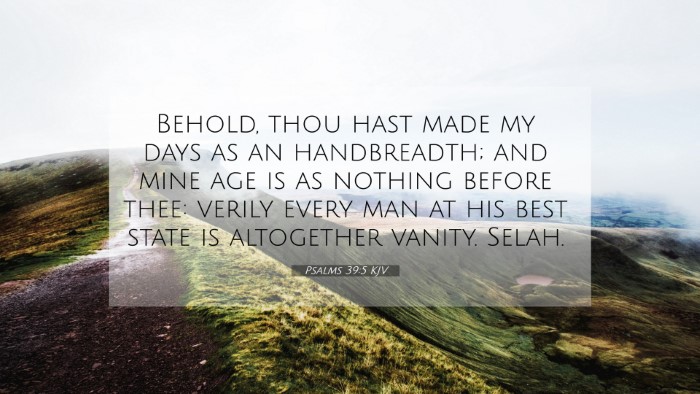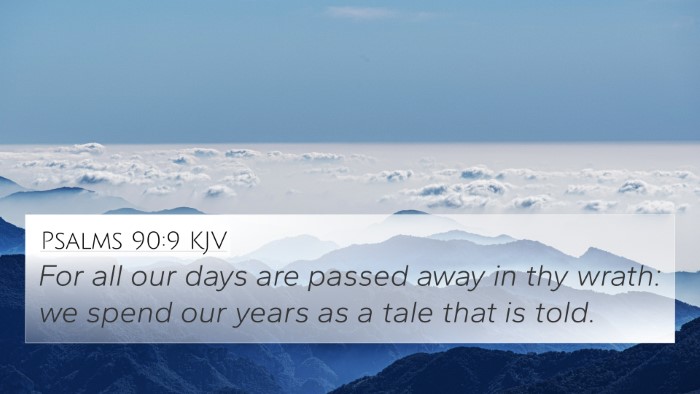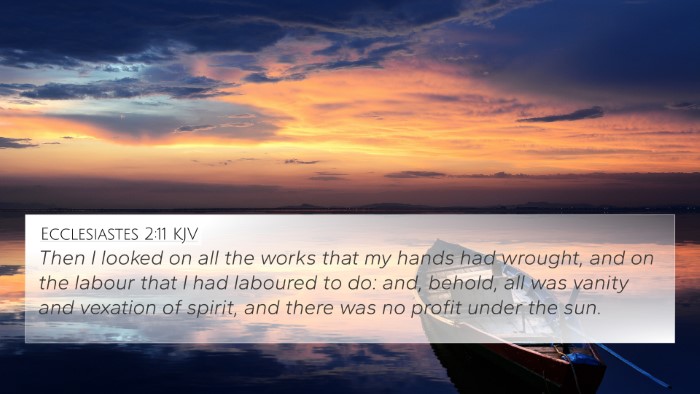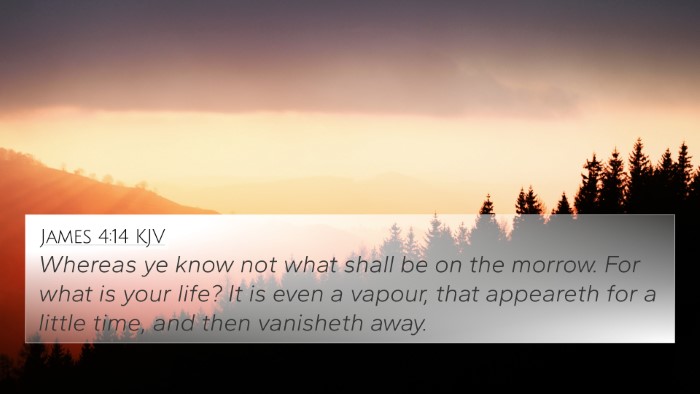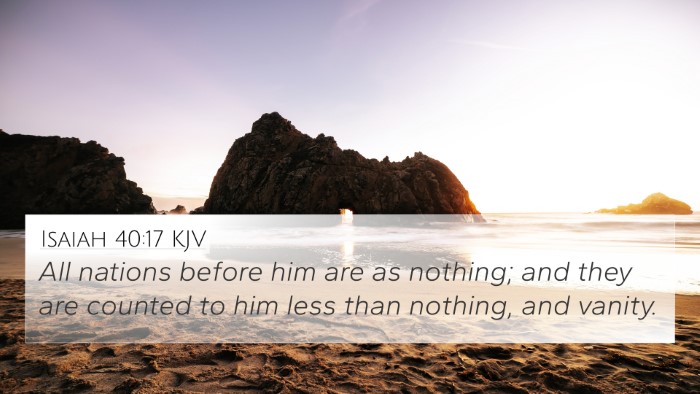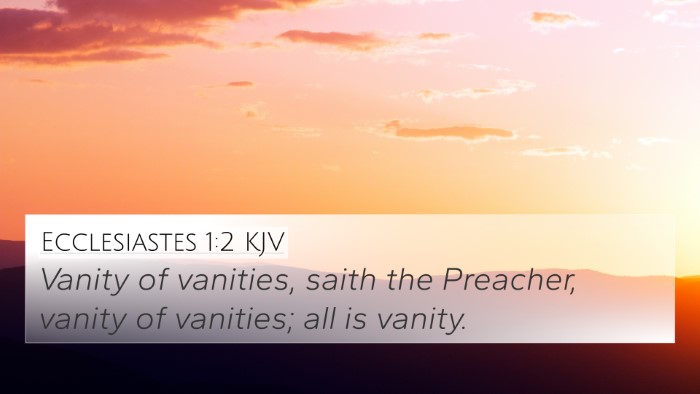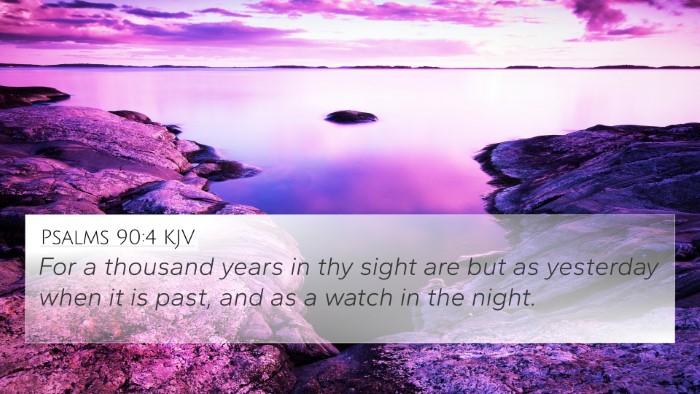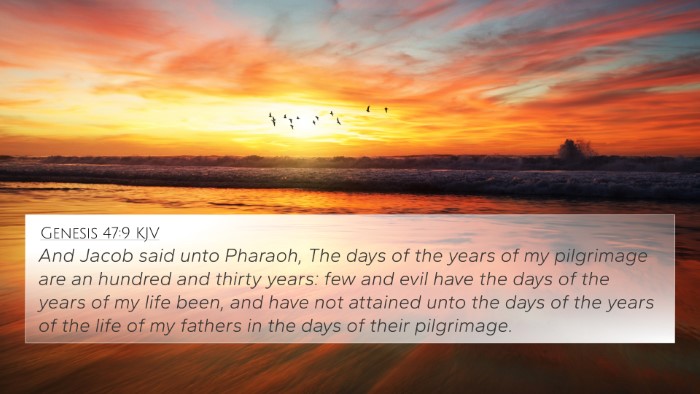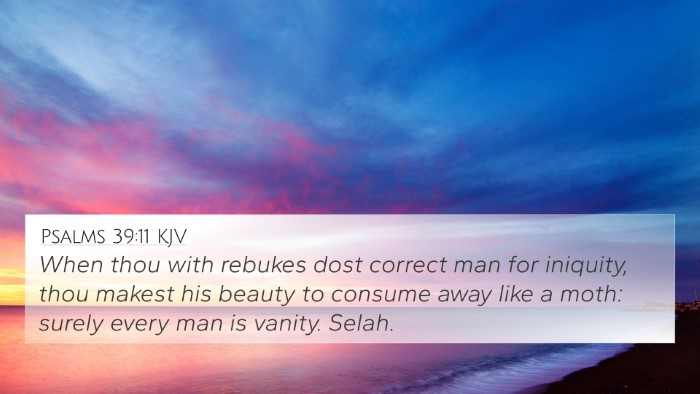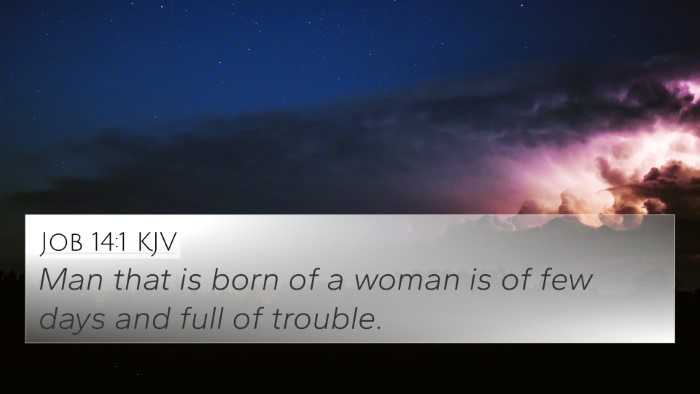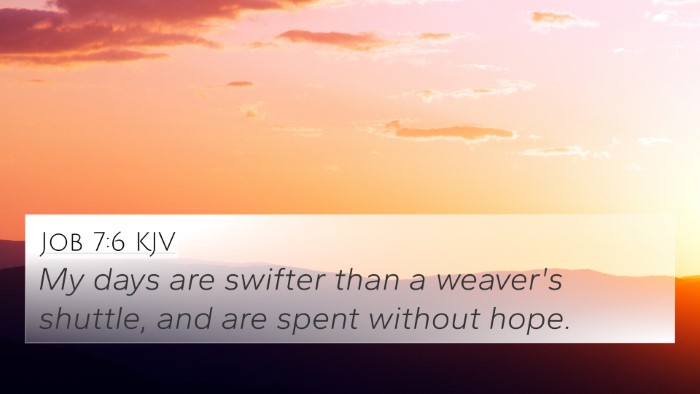Psalms 39:5 - Summary and Interpretation
Bible Verse: Psalms 39:5 states, "Behold, thou hast made my days as an handbreadth; and mine age is as nothing before thee: verily every man at his best state is altogether vanity. Selah."
Meaning and Context
The Psalmist, likely David, reflects on the brevity and fragility of human life, portraying it as fleeting and insubstantial when compared to the eternal nature of God. This verse encapsulates profound themes of mortality, the vanity of human endeavors, and the ultimate recognition of God’s sovereignty over time.
Key Insights from Commentaries
- Matthew Henry: Henry emphasizes the fleeting nature of life and how one might reach a point of understanding their own limitations. Life is brief—symbolized by the 'handbreadth'—and should redirect our focus onto the eternal rather than earthly concerns.
- Albert Barnes: Barnes elaborates on the idea of 'vanity', asserting that human pride and accomplishments are ultimately temporary shadows devoid of lasting value unless anchored in God. He calls for a humility that recognizes our place in the divine order.
- Adam Clarke: Clarke dives deeper into the metaphor of measurement. He interprets the 'handbreadth' as a reminder of human insignificance before God. His commentary shifts towards a practical application encouraging believers to cherish time wisely, realizing the importance of spiritual over material pursuits.
Cross-References and Connections
The psalm verse resonates with various other biblical texts, providing a rich backdrop for comparative Bible verse analysis. Below are pertinent cross-references:
- James 4:14: "Whereas ye know not what shall be on the morrow. For what is your life? It is even a vapor, that appeareth for a little time, and then vanisheth away."
- Ecclesiastes 1:2: "Vanity of vanities, saith the Preacher, vanity of vanities; all is vanity."
- Isaiah 40:6-8: "The voice said, Cry. And he said, What shall I cry? All flesh is grass, and all the goodliness thereof is as the flower of the field..."
- Psalms 90:12: "So teach us to number our days, that we may apply our hearts unto wisdom."
- Job 7:17-21: Job reflects on man's significance and divinity's scrutiny, paralleling David's contemplations in Psalms.
- 1 Peter 1:24: "For all flesh is as grass, and all the glory of man as the flower of grass. The grass withereth, and the flower thereof falleth away."
- Hebrews 9:27: "And as it is appointed unto men once to die, but after this the judgment."
Thematic Connections
This verse interfaces with broader themes throughout the Bible, fostering a rich tapestry of understanding on mortality and human perspective on life:
- Human Frailty: Echoed in various passages discussing the ephemeral nature of life.
- Divine Sovereignty: Illustrating the contrast between God's eternal nature and human temporality.
- Call to Wisdom: Similar to advice across scripture about recognizing and valuing one's time on earth.
- Life's Purpose: Encouraging believers to focus on what endures, rather than on vanity.
Bible Study Resources
For those interested in deeper study and understanding of the Bible, consider using:
- Bible concordance for locating themes and concepts efficiently.
- Bible cross-reference guide for cross-linking scripture.
- Comprehensive tools for Bible cross-referencing to explore inter-Biblical dialogue.
- Bible chain references for thematic connections across different texts.
Conclusion
Psalms 39:5 provides a sobering reminder of life’s brevity and the importance of a God-centered perspective. Integrating insights from public domain commentaries and examining cross-references enriches the understanding of this profound verse.
Additional Thoughts
Delving into the themes of mortality and divine purpose, believers are encouraged to reflect on their lives in light of eternal truths, using tools for Bible cross-referencing to draw deeper connections across the Scriptures.


